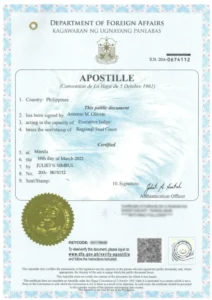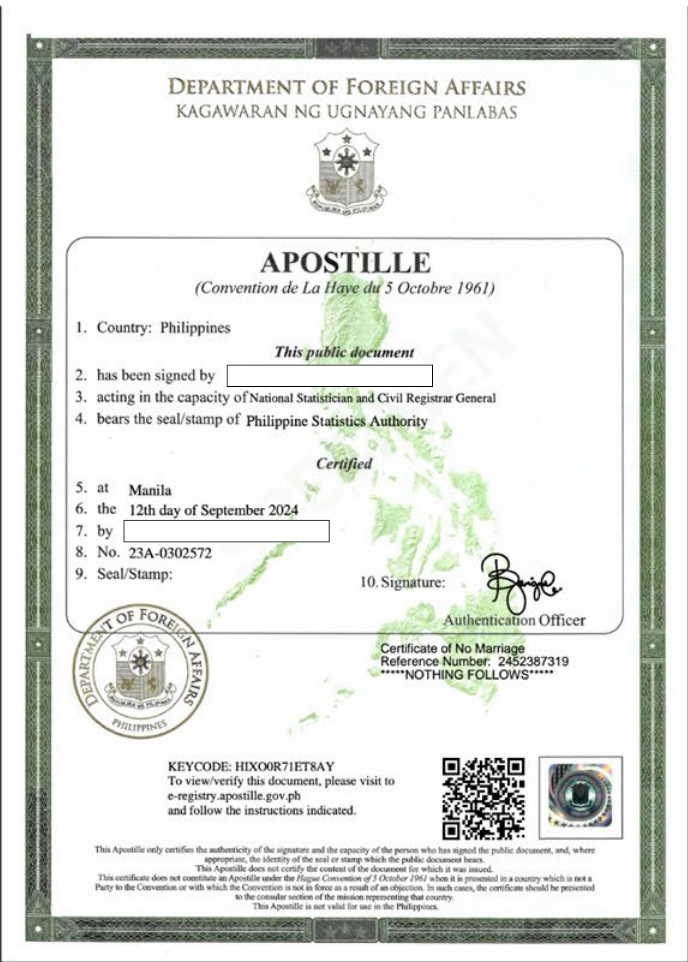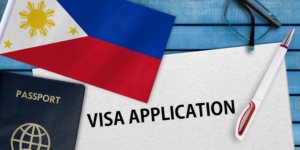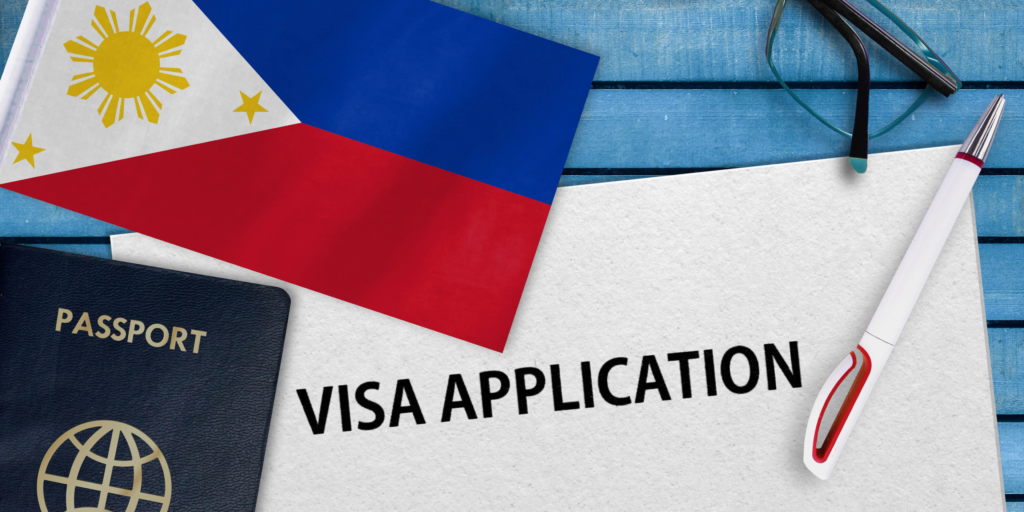When dealing with document authentication in the Philippines, you may encounter two types of apostilles: the traditional DFA Apostille and the newly introduced e-Apostille. While both serve the same purpose of validating documents for use abroad, they differ in terms of application, issuance, and accepted document types. Understanding these differences is essential for ensuring your documents meet international requirements.
DFA Apostille
The Apostille is a physical authentication certificate issued by the Department of Foreign Affairs (DFA) that replaces the “Red Ribbon” certification. This process validates the authenticity of the Philippine documents for use in other countries that are also part of the Hague Apostille Convention.

Apostille Certificate Sample.

DFA e-Apostille for PSA e-certificates
The e-apostille, also known as electronic apostille, is a digital version of the traditional DFA Apostille, designed to modernized and make document authentication more convenient. It is issued as an electronically signed and encrypted PDF document, eliminating the need for a physical copy.
However, unlike the traditional physical copy of DFA Apostille certificate, the e-apostille is only applicable to a limited number of documents. As the Philippines officially launched the e-apostille system on March 19, 2024, they have partnered with the Philippine Statistics Authority (PSA) to automates the authentication process through apostille of the PSA certificates or PSA e-certificate such as birth certificate, marriage certificate, and CENOMAR.
e-Apostille certificate sample.
Key Differences Between DFA Apsotille and e-Apostille
Feature | DFA Apostille | e-Apostille |
Format | Physical Certificate | Digital PDF |
Processing Time | Days to weeks | Faster (usually within a day) |
Collection Method | In-person pick-up | Online download |
Scope | Wide range of documents | Limited to PSA Certificates |
Verification | Physical inspection required | Online verification portal |
International Acceptance | Recognized by Hague Convention countries | Recognized by Hague Convention countries that accept digital apostilles |
Which Apostille Process Should You Choose?
Keep this in mind when processing apostille certificate:
If your document is eligible for e-Apostille and the receiving country accepts digital apostilles, then e-Apostille is a faster and more convenient option.
If your document is not covered by e-Apostille or the recipient country requires a physical apostille, then you must opt and still require for the traditional DFA Apostille.
Always verify with the requesting authority in the destination country to ensure they accept e-Apostilles before choosing this option.
Sounds Overwhelming? It doesn’t have to be!
FileDocsPhil makes the apostille process hassle-free by assisting you in identifying the correct authentication method, verifying if the receiving country accepts DFA Apostille or e-Apostille, and handling the entire processing with the DFA. We ensure that all documents meet the necessary requirements, submit them for authentication, and arrange for secure pick-up or delivery—saving you time and effort.
Let FileDocsPhil Do the Work!
Need further information and assistance in Apostille Process? Talk to our team at FILEDOCSPHIL to know more about the requirements and process. Call us today at (+63) 917 149 2337 or send an email to info@filedocsphil.com for more information or simply message us through the live chat for more information.







